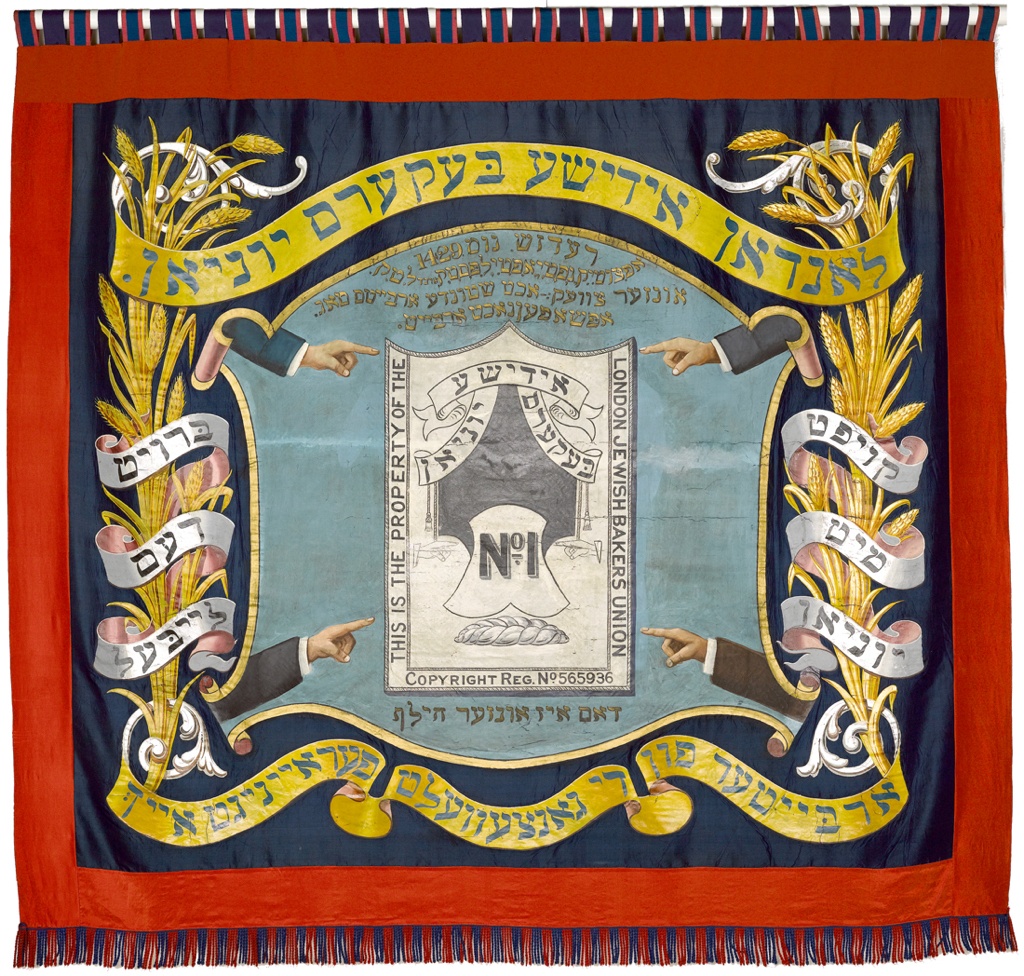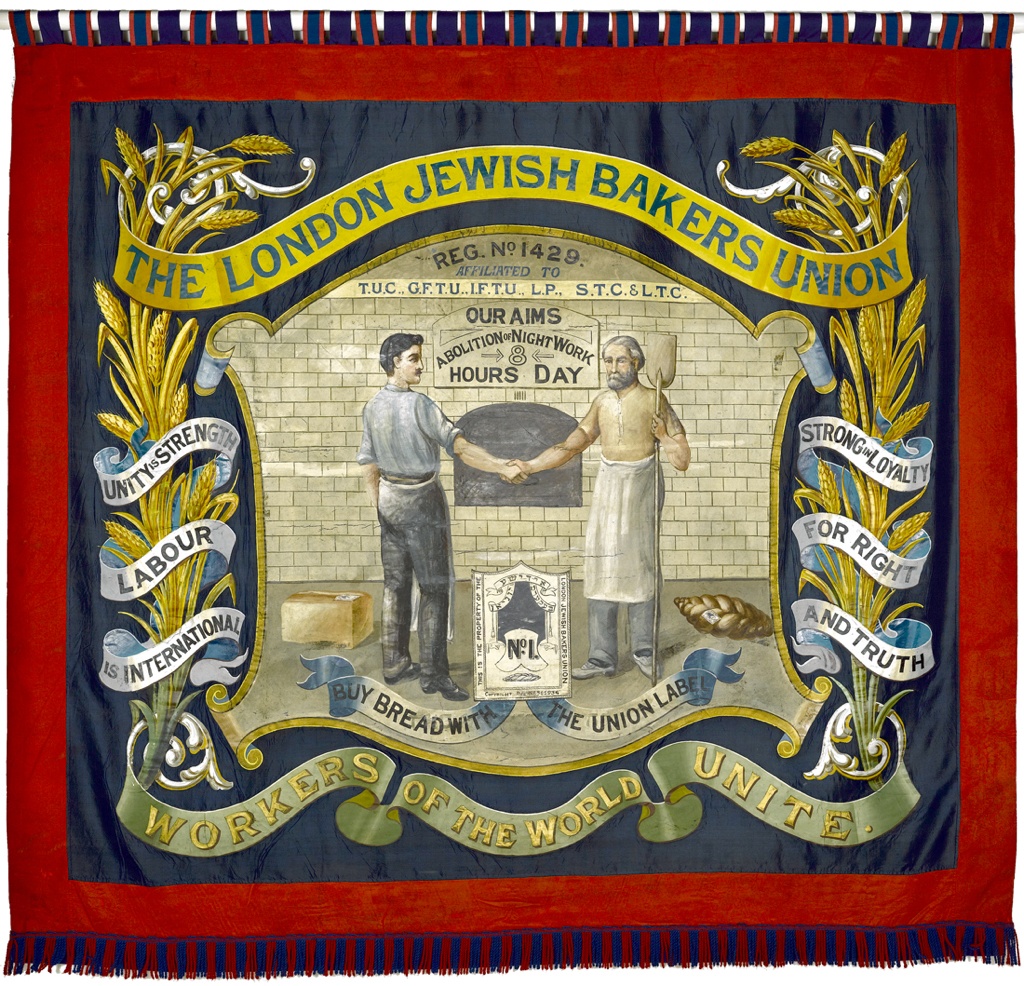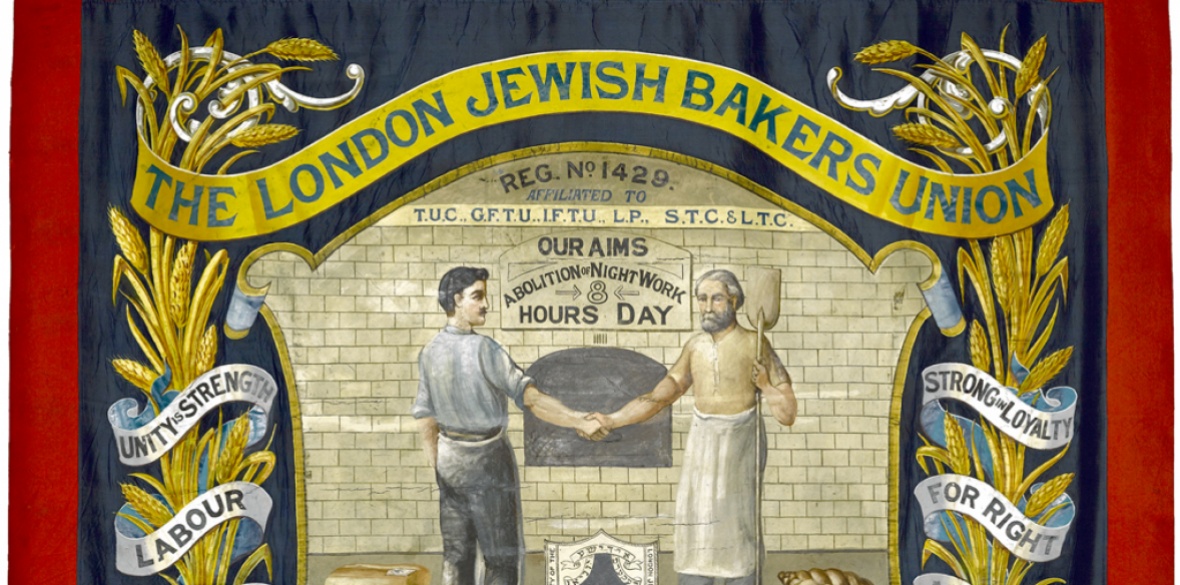This is the last article you can read this month
You can read more article this month
You can read more articles this month
Sorry your limit is up for this month
Reset on:
Please help support the Morning Star by subscribing here
THE LONDON Jewish Bakers Union (LJBU) was established in 1909 with the aim of fighting for better conditions, including an eight-hour day and the abolition of night shifts, and more pay.
LJBU began life in meetings of refugee bakers held in the Jewish pubs in London’s Black Lion Yard. At the time, most Jewish immigrants absorbed socialist ideas through union activism rather than study of its theory.

Uniquely, the LJBU practised a system of “jobbing” as a response to the depression, which required each member to stay away from work at regular intervals, such as a day a month, when his place would be taken by an unemployed member at the same, regular rates.
The union’s 110th anniversary is this year and in the collection of the Jewish Museum in London, there’s a magnificent LJBU banner painted on silk. A redolent symbol of the trade and the aspirations of its members, it’s one of only two surviving Jewish union banners in Britain.
Bakery owners of the day were ruthless and mercilessly exploited a workforce made up mostly of poor immigrant workers from Russia and eastern Europe. Many worked 27-hour shifts in dangerous conditions, exposed to extreme heat in unsanitary environments.
Unions were legalised in Britain in 1871 but early on many, as well as the Trades Union Congress (TUC), encouraged by the stance of the governments of the day, opposed immigration with the familiar arguments about immigrants taking jobs, undercutting wages and taking over parts of cities.

Consequently, immigrants were excluded from membership with the laughable excuse that they did not speak English. Undeterred, Jewish workers began to unionise and over 200 joined the LJBU after its establishment in 1909 and nearly all of them lived or worked in Stepney. The union was small but powerful as nearly every Jewish baker belonged to it.
In a tactical masterstroke, unionised bakeries demanded bread baked by them displayed the “Baked by Union Labour” label, which guaranteed that it was produced under acceptable working conditions — an early “fair-trade” symbol.
It is said that after Jewish women shoppers of the East End refused for a number of weeks to take any loaves offered in bakers’ shops or grocery stores that had no such union label the bakery owners caved in, allowing the labelling of breads baked by unionised shops.
The LJBU banner was commissioned in 1925 and produced by Toye & Co Ltd while Michael Prooth was the union’s general secretary. A year later, he was deported to the Soviet Union after spending five months in Pentonville prison for having cut off the power in Kossof’s bakery to prevent work being done during the General Strike — apparently an offence against the Emergency Powers Regulations of the Stanley Baldwin Conservative government.
Even so, the union he headed went on to become the longest enduring Jewish trade union and it operated until 1970.
On one side of the banner the text is in English while Yiddish, the language spoken by most immigrant Jews at the time, adorns the other.
Nowadays it has pride of place at the Jewish Museum, illustrating eloquently the living link with the vibrant Jewish labour movement of London’s East End at the turn of the 19th and 20th centuries.
Visit jewishmuseum.org.uk for more details.











